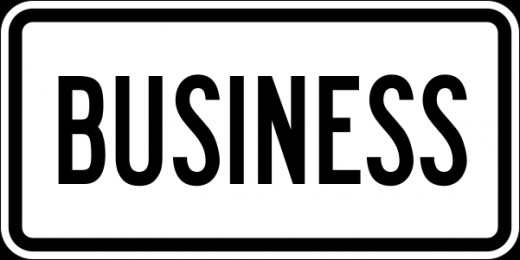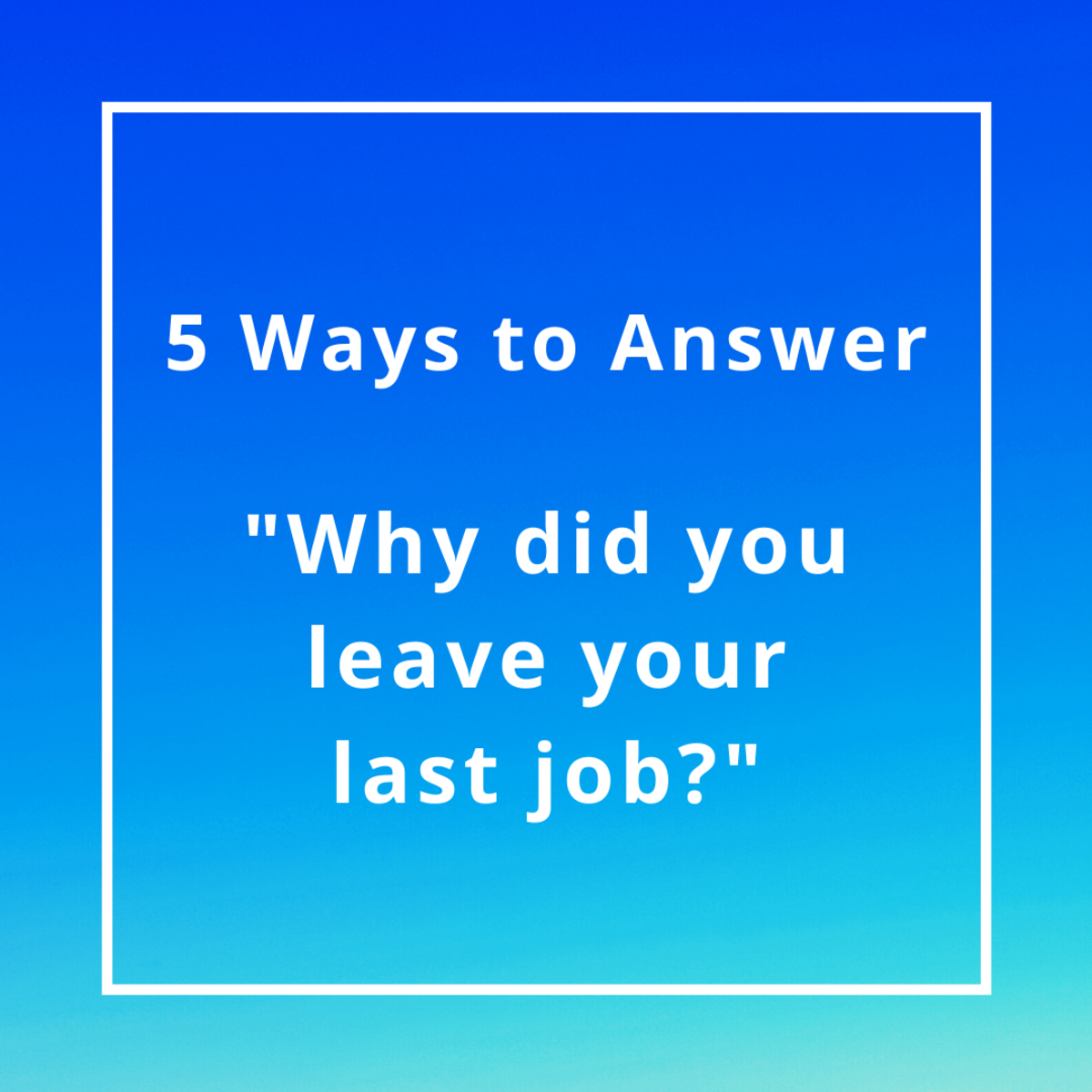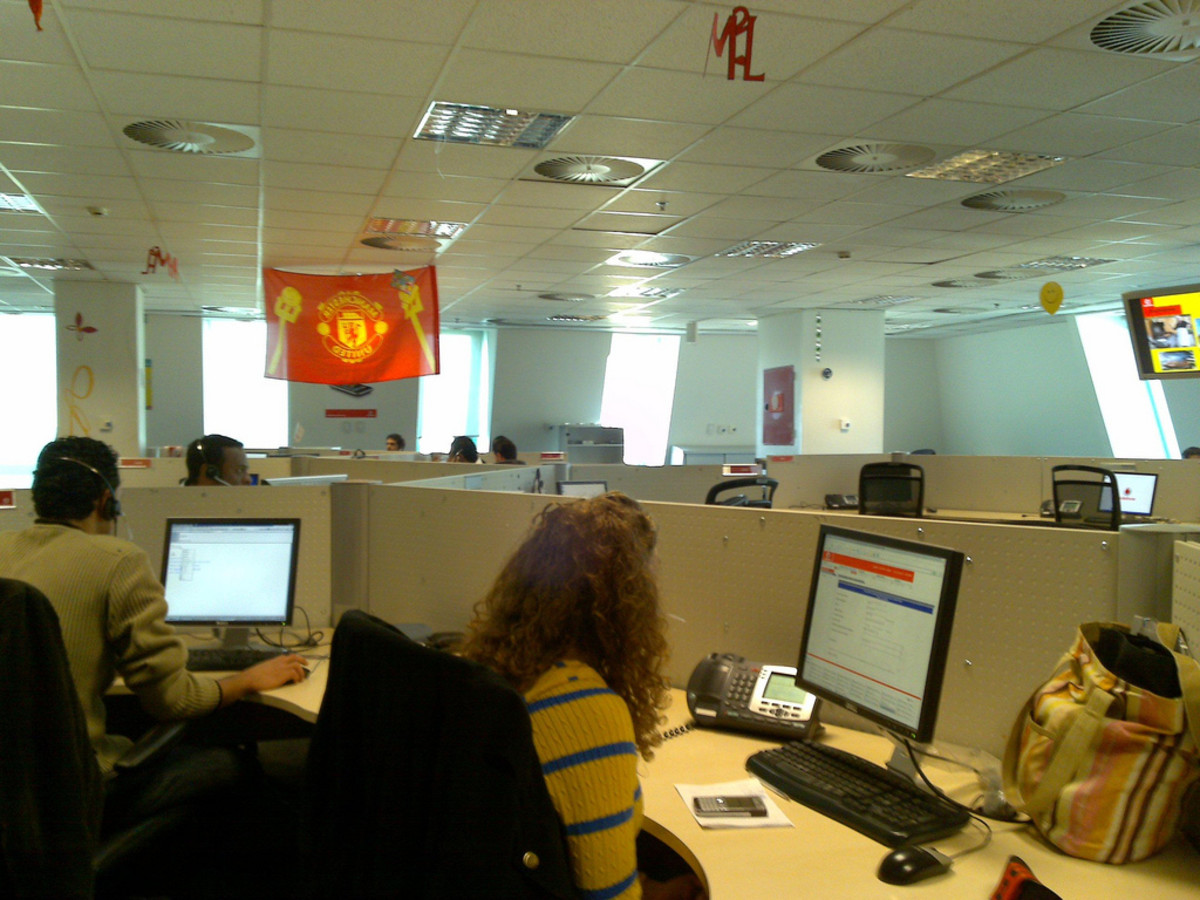Top 10 Interview Mistakes To Avoid

Your Own Recession
Whether or not we are in an economic recession as a nation and experiencing increasing Unemployment Rates in many states, the following 10 negative attributes will lengthen your own recession by losing you job after job in the interviewing process.
Read about these Top 10 Mistakes and take a look look at the effective tips at the end of the list. If you have any personal interviewing nightmares or dream jobs come true, please feel free to share them in the Comments section at the end of this Hub.

Preparation
Many recruiters advise job seekers and employed professionals that, on the job, if they are not promoted at least once every 4 years, to seek employment elsewhere. I'd like to add to thast advise that even the employed should continue to review job listings and related industry updates, trends, and innovations in order to
- Stay informed about the local and national employment markets,
- Participate in conversations with peers and superiors inside and outside the company in order to establish and maintain useful contacts through savvy credibililty, and
- Widen one's network of business contacts in order to make referrals of good job cadidates and to secure a new position for oneself more quickly should the need or desire arise.
It is also wise to interview for other positions, even though one is happy in one's current position and company. This can be pursued discreetly once or twice a year. Professionals may find it wise to establish a relationship with an employment recruiter or head hunter and maintain it over the years. It's another business contact and a mainline to new opportunities.
The first interview mistake:

1) Presenting as the Lone Ranger
Even if you have never worked before, you should have been involved in group or class service projects that give you a connection with an advisor. Many high school students in America must perform community service in order to graduate, so it is wise to make this experience count and to gain a good reference as well as a rearding experience from this requirement. A little volunteer work throughout the lifespan is not a bad thing. Many feel it to be a duty. In fact, many coporations have a communtiy reinvestment and volunteer program. If you already volunteer, then you already have some "fit" with the image of their leadership and staff.
Good relationships with high school teachers, school principals, and college professors, instructors, and guidance officers are also valuable. For working professionals, there are cowokers, superiors, and subordinates from current and former companies. For single stay-at-home parents, there are the car-pool parents that are just as good a reference as an employer -- It's a big responsobility to drive someone else's child somewhere or to babysit. Children have grown up to provide their babysitters with references, so do not discount it - if you babysat a child having math difficulties, tutored him, and he was able to enter a leading college becuase of you help, then that is a good reference. .
If you are in clubs, a church, a mosque, a synagogue, a sports group, a band, or a dance troupe, there is someone else in that group that can provide you a reference.
The point is, make some connections that are worthwhile.
The US Bureau of Labor Statistics estimates that America supports abuot 6.5 job seekers per job listing available. The US has had 3,000,000+ jobs listed in the 3rd and 4th Qtrs of 2009 via all Internet sources, according to SimplyHired.com and Indeed.com employment trending and search sites. So, this means that we have 19,500,000 unemployed people in the country vying for these jobs. To secure one of them, you must be a standout. Conenctions show that you can get along with others productively and add something good to the mix.
Still have no connections? You can begin by getting to know your neighbors and checking on the senior citizens on your street to ensure their wellbeing. Keep an eye on neighbors' properties when they are away and encourage them to do the same fo rotehrs. A reference from a good neighbor is a pretty good one.

2) Cluelessness
If you don't read up on the current employment an business trends, you won;t have enough to say in a job interview and you won't have as good of questions that you can ask at the end of your interview. If you make this updating part of your usual routine, then you'll have no problem.
If nothing else, Google the company to which you apply and read their website pages. Then Google the industry attached to that company. The company website may already have news links for that reason.
3) Inappropriate Emotional Presentation
This can be difficult, especially for new interviewees. It is not merely a matter of learning about Emotional Intelligence and how it enters into interactions in the workplace to make or break you career. It is about projecting appropriate emotions - or affect, as psych professionals and counselors term it.
HR interviewers have been noticing that some job candidates present themselves in interviews as very angry and unjustly wounded by a former employer, a downsizing, or by life in general. This is off putting. A mature potential employee demonstrates that he or she understands business trends that can lead to layoffs and that job seeking may be a life-long career in itself within in a changing global marketplace.
4) No Personality
Some job seekers show no emotion at all during interviews and speak in one-word sentences. Again, this is off putting.
Some interviewees are over focused on getting their own side of the interview out into the air and controlling the interview process. In fact, many people that talk too much are using conversation to control others. Off putting? - Yes.
Let the interview be a two-way communication led by the interviewer, unless the he/she throws the conversation to you opening. You can use good taste in humor, but don't use slang or profanity -- The phrases "pi$$ed off" and "scr3wed" are profanity. At the same time, don't attempt to use advanced terminology that you don't understand, because there is no need to impress an interviewer with "big words" and you'll look foolish.
Interviewers are looking for employees with clean humor, good taste, friendly openness, and understanding or empathy.

5) Over Explaining and Under Explaining
When you belabor a point in an interview, or try to skim over it, you give the impression of a suspicious character. Explain layoffs and terminations in your past briefly, what you learned from them, and what you can do for the current potential employer now. Most smart recruiters and interviewers look for progress in a person's history.
6) Blasé blasé
While it won't do to be too excited during an employment interview, one should not present as overly nonchalant, either. Be yourself, but show some enthusiasm for your possible next company and job. Employers want workers that want to be there. The opportunities with a new company should energize you.
7) Hypervigilance and Over Focus
Practice relaxation techniques leading up to an employment interview and attend to what the interviewer has to say by using active listening. Respond to questions and comments in a straightforward manner and allow the interviewer to finish speaking before you begin. IF you need a minute to think about a reply, you can say so.
8) Attempting to Please Everyone and Failing All
Apply to job listings for which you are qualified overall. You may not know how to perform all of the duties in a job description, but you should be able to do about 80% of them. tell the interviewer that you are a quick learner, willing to work hard to master the additional tasks. If you should state that you can perform all of the duties of a job in which you know only 40-50% of them and you are inserted into a high pressure situation with little training time, you will likely not succeed. You may be fired.
At the same time, concentrate on the skills, talents, and educational background that will help you succeed in the job at hand. You may cloud the picture by discussing all your other skills in detail.
No matter what job and company you are considering, remember to ask about ongoing professional development opportunities and in-house training programs for advancement. Participate in these throughout your career.

9) Failure to Practice
It seems that many job seekers are still not ready to answer pertinent questions in job interviews. Rehearse with a friend, or at least in front of a mirror. Speaking in a huge step in solidifying your thought processing, so the more you speak your answers, attitudes, and beliefs, very often the more solid they will be and the more easy to express. Also prepare a 60-second summary of your education, experience, and what you can to for a new company.
Practice with speaking is one reason the trend in Pre-K3 and Pre-K4 is toward successfully raising the reading levels of these same elementary school children in higher grades. Children need to hear words, phrases, and sentences and to speak in order to learn how to process thoughts, to read, and to make verbal sense. That is what happens in Pre-K, along with the art and music that are essential for mathematics and language acquisition, according to the body of research literature of several decades and the Kennedy Center for the Performing Arts, among others. This is well known.
10) Same old, same old
If you’re the same as everybody else, why would any company hire you to achieve more of the same results? Companies want continuous improvement and better business results, not the status quo. Be ready to say how you increased business dollars or customers at your previous company, or how you increased the number of clients served through a non-profit.
If you have never worked but have done volutneer service or babysat or done odd jobs in the summers, then determine how you are different from others -- What makes you better at being a babysitter or volunteer and be able to state that clearly.
Remember also that military service is work experience. A man or woman that has served in the Armed Forces in Desert Storm, Iraq, or Afghanistan - or anywhere - has certainly accomplished achievements that others have not.

Another Mistake
11) Forgetting to ASK for the Job.
End every job interview with a synopsis of your potential contribution to the company and a request to be hired (this is where part of your 60-second spiel comes in handy).
Thank the interviewer for the interview, shake hands firmly with a real smile that reaches your eyes, and promptly send a thank you note or letter to the interviewer by snail mail.
© 2009 Patty Inglish MS MPH








